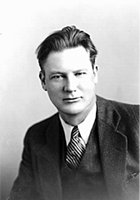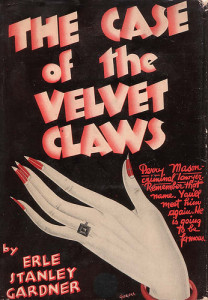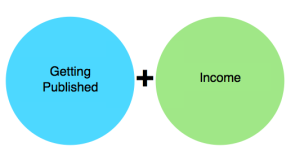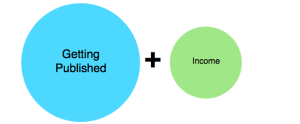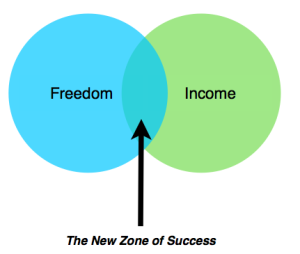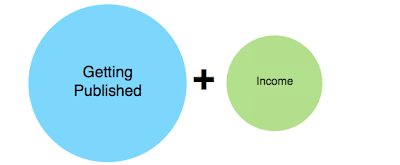
Dictionary.com defines success as
- the favorable or prosperous termination of attempts or endeavors; the accomplishment of one’s goals.
- the attainment of wealth, position, honors, or the like.
* * *
There are many opportunities for success in life. Winning a race, getting the lead role in a play, graduating from college, etc. But how do we define success in writing? I can imagine a list of possibilities: publishing that first book, securing an agent, receiving an award. But every time one goal is met, another rises up to take its place. I was having a hard time understanding exactly how to define success in my own writing, so I sought wisdom from that most knowledgeable of twenty-first-century oracles: the internet.
People who are famous must be successful, right? So they would be the logical ones to provide us with clues into what it was that helped them attain their status. I began my quest at medium.com and brainyquote.com, and I roamed around in their quote galleries, moving from room to room looking for the perfect definition of success. I found an enormous variety of ideas, and I’ve listed some of the quotes below for your enjoyment. I’ve also provided an occasional thought or two of my own in bold.
* * *
I started out with a couple of simple statements.
Reaching the goal is not success; success is moving toward the goal. –Bob Proctor So it’s the journey, not the destination?
Eighty percent of success is showing up. –Woody Allen Well, that’s encouraging, but I’m not convinced.
I moved on and found some quotes that were more to my liking.
Success depends upon previous preparation, and without such preparation there is sure to be failure. –Confucius
Success is dependent on effort. –Sophocles
Judge your success by what you had to give up in order to get it. –Dalai Lama XIV
Success is to be measured not so much by the position that one has reached in life as by the obstacles which he has overcome. –Booker T. Washington
So it has to do with hard work and overcoming obstacles. But that’s not to say happiness doesn’t play a part.
Success is not the key to happiness. Happiness is the key to success. If you love what you are doing, you will be successful. –Albert Schweitzer
Success is getting what you want; happiness is wanting what you get. –Dale Carnegie
All of these were good, but I soldiered on and found a group of fascinating (and confusing) quotes that mentioned the part failure plays in success.
Success is the ability to go from failure to failure without losing your enthusiasm. –Winston Churchill I usually like quotes by Winston Churchill, but this one left me scratching my head.
Success is falling nine times and getting up 10. –Jon Bon Jovi I don’t understand this. How can you get up ten times if you only fell nine times?
Failure is success if we learn from it. –Malcolm Forbes It seems like this would depend on what we learn from it.
Success is often achieved by those who don’t know that failure is inevitable. –Coco Chanel I read this one over about ten times, and I still don’t understand what it means.
Success is how high you bounce when you hit bottom. –George S. Patton Once again, failure plays a part, and General Patton gives us a nice image to go along with it.
Success does not consist in never making mistakes but in never making the same one a second time. –George Bernard Shaw This one made sense to me.
Then I found a surprising quote from Andrew Carnegie who was once the richest man in the world. His net worth in today’s dollars would be over $300 billion.
There is little success where there is little laughter. –Andrew Carnegie I bet Mr. Carnegie was laughing all the way to the bank.
Speaking of laughter, here are a couple of quotes that had me chuckling.
All you need in this life is ignorance and confidence, and then success is sure. –Mark Twain
If at first you don’t succeed, try, try again. Then quit. There’s no point in being a damn fool about it. –W.C. Fields
* * *
All of the quotes were interesting, and different people clearly have different measures for accomplishment, but I still hadn’t come up with a definition of success in my writing. Then I realized success may not be what I was looking for after all. I remembered this quote by Viktor Frankl in his book Man’s Search for Meaning:
“Don’t aim at success. …For success, like happiness, cannot be pursued; it must ensue, and it only does so as the unintended side-effect of one’s dedication.”

Ah. Now we’re getting somewhere.
Interesting note: James Scott Bell’s TKZ post yesterday quoted Louise Parr, an author who had contributed to On the Art of Writing Fiction, published in 1894. Ms. Parr observed
there is a moral satisfaction in having done good work which no one can rob us of.
That was written 130 years ago, and it’s still as fresh and meaningful as it was then.
* * *
So TKZers: What is your definition of success in your writing? Is it one over-arching achievement or many goalposts along the way? Do you consider doing good work independent of recognition or success? Do any of the quotes in this post appeal to you?
* * *
 Private pilot Cassie Deakin has one measure of success: to find the culprits who assaulted her uncle. But when she achieves that goal, she faces a much more difficult challenge.
Private pilot Cassie Deakin has one measure of success: to find the culprits who assaulted her uncle. But when she achieves that goal, she faces a much more difficult challenge.
Buy on Amazon, Barnes & Noble, Kobo, Google Play, or Apple Books.




